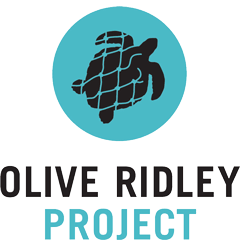Vindhu’s journey so far
Support ORPTrack, a satellite tagging programme
Where do our olive ridley patients go once we release them? Help us find out by supporting ORPTrack, our satellite tagging programme.
Between 2017 and end of 2025, we released 150 rehabilitated patients from our sea turtle rescue and care centres in the Maldives, most of which were olive ridleys. Olive ridleys, unlike the commonly seen green and hawksbill turtles, spend most of their life in the open ocean. Therefore, we know surprisingly little about them!
ORPTrack, is a scientific research project through which we aim to gain better understanding of the feeding habits and habitat use patterns of olive ridley turtles. We deployed our first satellite tag on 18 April 2022, attached to Autumn, a sub-adult olive ridley. Since then, we have tagged and released six more olive ridleys, the most recent being Vindhu on 16 January 2026.
These satellite tags allow us to track turtles for up to a year. We consistently monitor, record and analyse the data transmitted from these satellite tags. The aim is to answer two important questions to fill crucial gaps in sea turtle research and help plan future conservation strategies:
- Where do olive ridley turtles go to feed in the Maldives and in the larger Indian Ocean?
- What environmental factors make up a good feeding ground for olive ridleys?
We would like to thank Reef & Oceans, and Thorsten Albrecht, and Friends of Frontiers for the initial startup funding for ORPTrack. You too can be part of this exciting project by donating below. As a supporter of ORPTrack you will receive:
- Regular updates, including maps showing where our tagged turtles are travelling to
- Periodic project updates
- Hot of the press research findings
- A mention on our website as an ORPTrack supporter (if you choose to)
We are grateful for any donation we receive – big or small.
Thank you!


